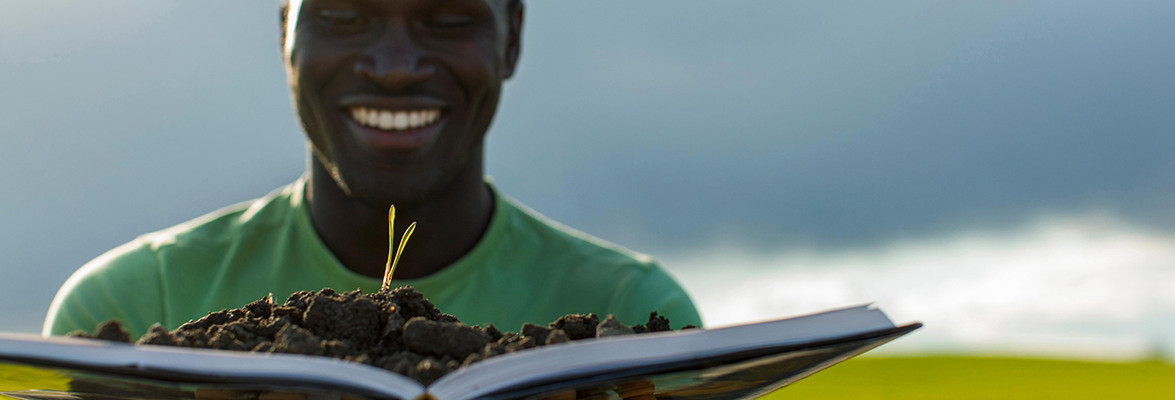
Written by Anna-Sophie Hobi and Gard Frækland Vangsnes
The COVID-19 pandemic poses various challenges and changes for researchers. Young scholars working within a tight time frame are especially impacted and encouraged to adapt quickly. Social distancing, corona measures, travel restrictions and the constant uncertainty force us to readjust our methods and use digital platforms. Despite the creativity and innovation in methods, the pandemic has deeper implications on our research endeavors and PhD projects and raises profound concerns about methodology and research practice.
Pandemic Methodologies
Based on this concern, the PhD group at Noragric launched a workshop series under the title Pandemic Methodologies as a space for wider discussions, mutual support and idea sharing. The first workshop focused on ethnography and ethnographic research. It was organized by the RAPID cluster on December 15, 2020 and introduced by Anna-Sophie Hobi and Gard Frækland Vangsnes (both PhD Fellows at Noragric) and Andrei Marin (Researcher at Noragric and Head of RAPID).
An argument for long-term, participatory approaches
In his introduction, Vangsnes described his challenges related to the current impossibility to conduct ethnographic fieldwork in Ecuador. While assuming that this problem is widely shared by most social scientists in a pre-data collection stage, Vangsnes’ account was a personal one related to his particular project of studying extractivism, colonialism and indigenous communities in the southern Ecuadorian Amazon. His research design was developed on the premises of long-term ethnographic fieldwork based on participant observation. The restrictions imposed by the pandemic currently obstruct the realization of such a project and has generated a thinking around alternatives – what to do?
Referring to anthropologists thinking around the same challenges, Vangsnes mentioned a recent call towards Patchwork Ethnography that seeks to resolve some of the tension caused by the pandemic while drawing on earlier attempts to decolonize ethnography. Arguably, the critique of traditional’ or ‘romanticized imageries of the hard-to-beat ethnographer, living in a remote village for years before writing an authoritative account of native people’s habits and customs is well-addressed[1] [2] [3] [4]. Modern life and modern expectations may imply a reformation of the ethnographic orthodoxy, yet Vangsnes wanted us to pay attention to this process and be careful not to ‘throw away the baby with the bathwater’[5].
According to Vangsnes, much of anthropology has incorporated the (well-directed) colonial critique in its methodological and ethical frameworks a long time ago, although there is still a need to decolonialize anthropology as (social) science in general[6]. This is not, however, the same as to question the value of long-term fieldwork and participant observation which has generated and keeps generating a kind of data that distinguishes anthropology from other social sciences. While acknowledging the value of moving from ‘knowing of’ (extracting data from informants) to ‘knowing with’ (collaborating with interlocutors), Vangsnes was concerned with an accelerated deconstruction of ethnography fueled by researchers’ time constraints that would in turn undermine the foundational building blocks of ethnographic insight and reduce it to some sort of fast-food, cultural consultancy. Or reactionary, as a return to desk-top anthropology.
This issue was discussed in the seminar along with the distinction between young and established researchers. Facing pandemic restrictions, the combination of time constraints and uncertainty speaks increasingly to a generation of young anthropologists that have yet to carry out their ‘deep immersion’ in the field. Despite a critical discussion of long-term fieldwork, both Vangsnes and Hobi emphasized their troubles dismissing the value of this legacy in favor of a pandemic pragmatism – you just have to do something else within the confines of the pandemic.
As both Vangsnes and Hobi are social anthropologists, the turn to digital interviews and/or data collection in social media appear as a poor alternative. Their concern is that the current situation begs anthropologists to do something different, that is, a non-ethnographic anthropology which is at best a sociology, a philosophy or an archival study requiring a different methodological apparatus generating a different kind of data. The point here was not that Vangsnes and Hobi refuse to engage with other disciplines that may indeed revitalize their ethnographic scope. Rather, their concern is that the current situation forces them to rethink their projects on unfamiliar methodological terrains. And to do so fast. The question emerging is what are the implications of this?
Field access: old challenges in new wrappings?
While this debate has been ongoing in anthropology departments around the world since the outbreak of the pandemic (see links to blog posts below), the discussion has been surprisingly silent in Norway despite the strict travel restrictions for Norwegian academia. At best, it can be found in methodology courses for master students faced with the same difficulties. Presumably, there are too few PhD/Postdoctoral fellows in the pre-fieldwork stage and the deep stress this causes to these few, seems to be qualitatively different for established researchers that can, in one way or the other, wait until this whole situation calms down before returning to consider a new round of data collection.
This distinction between permanent and temporary academic positions speaks to the broader observation, namely that the pandemic has a differentiated and unequal impact upon people’s lives and work (publication rates, for instance seem to increase as senior researchers have found time to write up in home offices). Nevertheless, research in the sense of data collection, is delayed across the academic community, and qualitative research such as ethnography is particularly affected.
Hobi explained how the pandemic has forced her to rethink her PhD project, especially her field site. Originally, Hobi’s plan was to study lithium mining in Zimbabwe yet given current travel restrictions she is now pitching a larger part of her data collection towards companies and the lithium industry in Norway. This will enable her to work methodologically with digital platforms to collect empirical data (see resources on digital ethnography below). In this scenario, however, participant observation is virtually non-existent along with the temporality of ethnographic fieldwork. Indeed, digital interviews and communication across social media platforms in all its diversity, will generate data, but will it still be ethnographic? What about the dynamics between distance and proximity in this scenario; what about the refreshing reflections on ‘home’ when ‘away’ on fieldwork?
In the seminar, Andrei Marin shared experiences from his own research on challenges gaining access to the field. Marin shared stories of waiting and strategies of accommodating and/or pushing through for access among both Norwegian reindeer herders and Mongolian pastoralists. His major point was that ethnography is haunted with challenges of access which has been part and parcel of the field ever since Malinowski was left stranded on the Trobriander islands during the First World War. In fact, one could essentially say that the struggle to resolve and adapt to these challenges (along with its methodological reflections) has constituted ethnography itself. Yet, isn’t the ongoing pandemic somehow different in the sense that it is all-encompassing and affecting personal/professional lives of all interlocutors and researchers, albeit in idiosyncratic ways?
The latter question was addressed in the discussion: there seemed to be a consensus of the unique and unprecedented character of the pandemic[7]. Yet, there are long-standing ethnographic debates about both what constitute a field and what is data[8] along with an array of methodological reflections on (in)access(ability)[9]. Accordingly, there seemed to be a consensus that the current situation demands a new meditation on methodologies in which the legacy of ethnographic reflections is worth revisiting. In fact, this meditation can include critical questions as to what ethnography actually is, and to whom, and on what grounds, ethnography is continuously defined1
Conclusions
The instability and precarity of the COVID-19 pandemic pose a heavy load on the shoulders of young researchers: uncertainty has never been stronger, yet they are under pressure of delivering high-quality research to pursue a career in academia. Each project is individual and therefore requires a different strategy of coping. Researchers can find inspiration through methodological discussions by ethnographers faced with relatable challenges. Although there are presumably few ethnographers currently being affected, the unfoldment of the pandemic (and the vaccination programs) carries an uncertain temporality with uncertain outcomes. We argue that the methodological implications go well beyond the concerns among ethnographic-oriented PhD candidates in a pre-fieldwork stage. Extraordinary times call for extraordinary discussions, exchanges and collaborations – not pragmatism and business as usual, as the conditions of the world and ethnography is moving into unfamiliar methodological terrain. At the same time, we argue that the institutional politics of travel restrictions begs a critical discussion attending to the importance of ethnographic research. For instance, why can journalists work all over the world, at all times, while researchers cannot?
Below, we have listed sources that echo and nuance the points highlighted here, along with references to key texts on digital ethnography/fieldwork.
The next Pandemic Methodologies workshop (early March 2021) is concerned with online interviews: How do setting and relation change when conducting interviews digitally? How can we learn to be sensitive and nuanced across digital platforms? What is lost and gained?

Anna-Sophie Hobi is a PhD Fellow at Noragric. Her main research areas lie within extractive industries, natural resource governance and renewable energy politics with a focus on lithium in Norway and southern Africa.

Gard Frækland Vangsnes is a PhD Fellow at Noragric. His main research interests are in extractivism, specifically mineral mining in the Ecuadorian Amazon. Vangsnes combines perspectives from anthropology, decoloniality and political ecology.
References
[1] Ingold, T. (2014). That’s enough about ethnography!. Hau: Journal of ethnographic theory, 4(1), 383-395.
[2] Clifford, J., & Marcus, G. E. (Eds.). (1986). Writing culture: the poetics and politics of ethnography: a School of American Research advanced seminar. Univ of California Press.
[3] Said, E. W. (1979). Orientalism. Vintage.
[4] Asad, T. (Ed.). (1973). Anthropology & the colonial encounter (Vol. 6). London: Ithaca Press.
[5] Callon, M., & Latour, B. (1992). Don’t throw the baby out with the bath school! A reply to Collins and Yearley. Science as practice and culture, 343, 368.
[6] Jobson, R. C. (2020). The case for letting anthropology burn: Sociocultural anthropology in 2019. American Anthropologist, 122(2), 259-271.
[7] Góralska, M. (2020). Anthropology from Home: Advice on Digital Ethnography for the Pandemic Times. Anthropology in Action, 27(1), 46-52.
[8] Gupta, A., & Ferguson, J. (1997) Anthropological Locations: Boundaries and Grounds of a Field Science, University of California Press
[9] Hagberg, S., & Körling, G. (2014). Inaccessible fields: doing anthropology in the Malian political turmoil. Anthropologie & développement, (40-41), 143-159.
Digital ethnography
de Seta, G. (2020). Three lies of digital ethnography. Journal of Digital Social Research, 2(1), 77-97.
Pink, S., Horst, H., Postill, J., Hjorth, L., Lewis, T., & Tacchi, J. (2015). Digital ethnography: Principles and practice. Sage
Walker, D. M. (2010). The location of digital ethnography. Cosmopolitan Civil Societies: an interdisciplinary journal, 2(3), 23-39.
Blog post and discussions
https://docs.google.com/document/d/1clGjGABB2h2qbduTgfqribHmog9B6P0NvMgVuiHZCl8/edit?ts=5e88ae0a
http://somatosphere.net/2020/ethnography-in-pandamning-times.html/
https://www.americananthro.org/StayInformed/OAArticleDetail.aspx?ItemNumber=25631
https://culanth.org/fieldsights/editors-forum/covid-19
https://ii.umich.edu/cseas/news-events/news/search-news/anthro-in-time-of-covid.html
https://voices.uchicago.edu/linganthlab/covid19-resources/
https://ethnographylab.ca/category/ethnography-in-of-the-pandemic/
https://boasblogs.org/fieldworkmeetscrisis/field-of-exceptional-uncertainty/
http://transformations-blog.com/ethnographic-research-in-the-time-of-coronavirus/
https://leidenanthropologyblog.nl/tags/corona
https://americanethnologist.org/features/collections/pandemic-diaries
https://www.anthropology-news.org/index.php/2020/09/10/fieldwork-from-afar/
https://www.eth.mpg.de/5478478/news-2020-06-11-01


